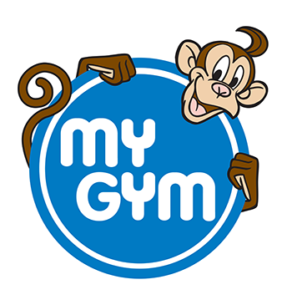How Language Skills Help A Child Connect Better
We all want our children to grow up confident, happy and well settled at home and carry it forward when he/sheis ready for school. Early development of language skills will help the child to make friends, get along with their teacher and have fun. The best part is you can start this right at home and right away.
Your secret weapon
When a child communicates easily and confidently, it limits frustrations and getting upset. It can also eliminate isolation altogether. Then of course, is the most important aspect for your child, being able to speak well helps a child express its needs and feelings and asking for help when needed.
Language sets the ball rolling and motivate caring adults to spend time and join in a lot of enjoyable activities together. It is not that you don’t participate now, but being able to do it for longer durations
will enhance the pace of learning. Reciting nursery rhymes, singing songs, playing games and listening to and discussing stories are all ways through which a child learns to interact with life at home and when at school.
Good language skills will also help your little one to make new friends and build relationships.These are very critical skills when a child is away from home during the day. It helps the child reach out to others, making the world less scary, when mums’ not around.
Jump at every opportunity
The good news is, you’re already playing a vital role in developing your child’s language skills when you play, read or chat throughout the course of your day. When there is a two-way conversation,developing language skills becomes easier and learning faster. There are lots of ways to encourage and nurture your child’s language skills:
- Draw a child’s attention: Some parents might feel that their child is ignoring them, just because they don’t look up when they speak to them. The truth might be something else, your child is too engrossed in what he/she is doing. That’s why, it helps to prefix the child’s name at the beginning of what you say. This will help them tune into you straight away.
- Be patient, give time to respond: A child needs time to process what you’ve just said, and find the words that he needs. And they will do that at their own pace. You can encourage by maintaining eye contact, showing you will be glad to wait and listen. Nod your head, to show you understand.
- Don’t interrupt your child: Build on what your child is saying. Keep the conversation going. Pay attention and show interest. Like when a child points at a toy duck and says “duk,” your best response can be, “oh yes, it’s a little, yellow duck.”Give every object a name: No matter what a child is playing with, or shows interest in, name it. Helps build vocabulary and enable the child to express what he wants without getting frustrated.
- Don’t hurry to correct: A child may not always get the words right or in the right order. Correct gently. When your child makes a mistake, say it back correctly but without letting them know the child was wrong. If a child says, “I falled down”, respond by saying, “Yes, you fell down.”
- Have fun talking: Turn your conversations into a game. Any interaction is an opportunity to tell a story. Imagine a different ending to a favourite story. Or just make up characters on the fly, and put your own spin on them. Make it adventurous.
- Never miss a day: Speak with your child as often, and as much as possible every day. Whether it’s time to eat, or when driving around in a car, or when you go out for fresh air in the park. Always talk about what you can both see or what you’re going to do. Your little one will actively hear new words, have more opportunities to speak and interact.
Keep your interactions interesting
Speaking and telling stories is a great routine for both you and your baby. Role playing is also a great way to explore and develop language skills, especially when you too get involved. This will also be a time you can look forward tointeracting with your baby.
When it comes to telling stories, choose from a wide range of books about animals, dinosaurs or a vivid fairy tale will be a great start. This way, neither of you will get bored.Besides this is the perfect time to snuggle up and read together. Also, make it a point to avoid TV when you are with your baby. Research indicates that it is both distracting and a big waste of your precious time together.
Nursery rhymes are fun, easy to learn and broaden a child’s vocabulary. Number rhymes are especially useful in helping your child to learn to count. Children often know the sequence of numbers before they develop an understanding of them. If your child can say numbers in the right sequence, it will really help when it comes to count real objects.
Early years are crucial for your child’s development. It is a period of great opportunity and lays the foundation of intelligence, personality development, improve social skills and behaviour. As for you, it will increase your capacity to learn and nurture yourself as an adult. Help you discover a facet of your personality you never thought you had.
https://mygym.com.sg/mygymold/programs/programs-tiny-tykes/ At My Gym, it is our aim to ensure that infants, toddlers and their parents have access to quality early childhood development programs, care and pre-primary education so that they are preparing for formal school education. If you’d like more information on the subject, or would like to get in touch with us, please Whatsapp us at – 8248 7702, or email us atwww.mygym.com)



